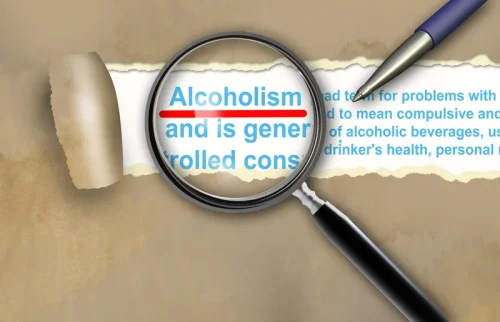
A tailored aftercare plan paired with a relapse prevention plan can help you stay away from triggers. Paired with relapse prevention strategies, sober living programs can help you maintain long-term sobriety. Consider asking folks at a recovery meeting or touching base with any sober friends you may have.
- Halfway houses and sober living homes fall under the larger umbrella of recovery housing.
- You’ll also have access to resources and activities designed to foster personal growth and life skills necessary for living a sober life.
- Level III homes employ administrative staffers, such as a facility manager and certified staff of case managers, and maintain an organizational hierarchy.
- To find out how much of the cost of sober living housing your health insurance will cover, it is best to call your insurance company before committing to a sober living home.
- You can also look into Oxford Houses, which provide all recovering users the opportunity to develop comfortable sobriety without relapse.
Networking and Support Systems
With rules that enforce sobriety and encourage participation in daily tasks and recovery activities, these homes help you build a routine that supports your sobriety journey. American Addiction Centers offers two sober living programs at the Oxford Treatment Center in Mississippi and the Greenhouse Treatment Center in Texas. Call today and find out how sober living housing may benefit your recovery journey.
Canadian leads group pushing Vatican for zero-tolerance policy on abuse by clergy

They will be able to discuss the best available options and can help locate nearby locations. You can also visit the websites of sober living homes in your area to find one that suits your needs. Many sober living homes are covered under insurance plans or government funding.
CTV News Programs
You’ll also have access to resources and activities designed to foster personal growth and life skills necessary for living a sober life. However, sober living houses are not covered under insurance since they do not provide treatment services and thus aren’t considered rehabilitative facilities. Both sober living homes and halfway houses support people recovering from substance use disorders.

What Is Sober Living and How Does It Support Recovery?
By understanding the structure and rules that govern these homes, you’re better equipped to select a living situation that aligns with your recovery journey. In essence, sober living gives you the tools and support necessary for recovery, laying a foundation for a stable, sober future. Whether you’re transitioning from an inpatient program or seeking to strengthen your recovery process, sober living homes offer an invaluable stepping stone towards lasting sobriety. Sober living goes beyond simply avoiding substances; it’s about building a fulfilling, meaningful life. By Overview Answer House providing a supportive environment, sober living helps individuals heal mentally, rebuild damaged relationships, and find a new purpose.
Level Three
However, each level of sober living home has different rules and restrictions. Some states reserve halfway houses for people moving from long-term incarceration back into their communities. Conduct some online research or call facilities in your area for more information. For these reasons, sober living homes tend to be the best fit for most people in early recovery. Your health and wellness is unique to you, and the products and services we review may not be right for your circumstances.
Nearly all sober living residents have recently completed inpatient drug and alcohol programs. Many people choose to stay in these homes while pursuing step-down levels of care like outpatient treatment or partial hospitalization (PHP). Another common mistake people make is confusing halfway houses with sober living homes. While both offer residents the opportunity to transition back into society, key differences exist between them. Brookford House is located in Dorchester and provides a safe supportive recovery environment for parents in early recovery who also need help to secure permanent affordable housing. This brings together all the expertise and services MHSA offers in both our recovery and shelter programs.
Other Sober Living Facilities
You’ll get a 100% custom plan, then use daily texts to track your progress and help you stay on target. Dr. Kennedy also suggests touring the home and asking to speak with current residents or alumni. Smith recommends asking and looking for what sets one SLH apart from the others to make sure its focus and expertise align with your objectives and personality.

- Through a combination of accountability and education, this supportive housing solution helps us prepare for tough real-world scenarios after treatment.
- Embrace this transition as a positive step towards a fulfilling, sober life.
- An often-overlooked aspect of transitioning is the importance of building a strong support network.
- This growth has created different types of sober living homes, each designed to meet specific recovery needs and levels of independence.
Sober living houses and halfway houses are often used interchangeably as they both provide a substance-free living environment for those suffering from addiction. Differences between the two can stem from funding, length of stay, and requirements to apply to live there. Sober living homes typically do not limit the length of stay and may not require previous attendance in a formal addiction treatment program. Halfway houses, on the other hand, typically have a time limit and require residents to either be attending a treatment program or have recently completed one.
Review Answer House: Path to Recovery
Embrace this transition as a positive step towards a fulfilling, sober life. An often-overlooked aspect of transitioning is the importance of building a strong support network. Sober living homes encourage connections with peers who share your commitment to recovery. In addition, attending local meetings, workshops, and staying engaged with counseling services can provide an added layer of support that’s instrumental in maintaining sobriety. Embracing these benefits, you’ll find that sober living homes offer much more than just a place to stay. They furnish you with the tools, support, and structure needed to build a solid foundation for your recovery journey.
